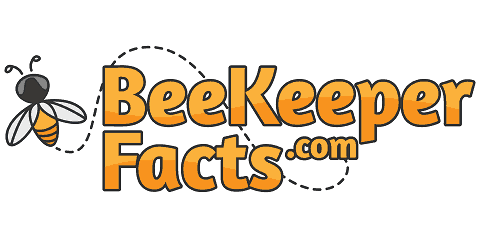How Much Money Can I Make Selling Bee Pollen? Does It Sell?
If you’re looking for another potential income stream from your hives selling bee pollen may be an excellent option. But, you do want to have realistic expectations. So how much money can I actually make selling bee pollen?
You can realistically earn between $2 to $2.75 per ounce, $9 to $10.25 per 100 grams, and $18 to $24 per lb for dried granular bee pollen. You can charge a premium for bee pollen powder, fresh and frozen pollen, pollen in capsule form, and for pollen extracts. The prices will vary by region.
If you have strong honey bee colonies why not try to make some extra income by collecting pollen. I’ll explain in more detail how much money you could potentially earn from selling your bee pollen.
Can You Make Money Selling Bee Pollen
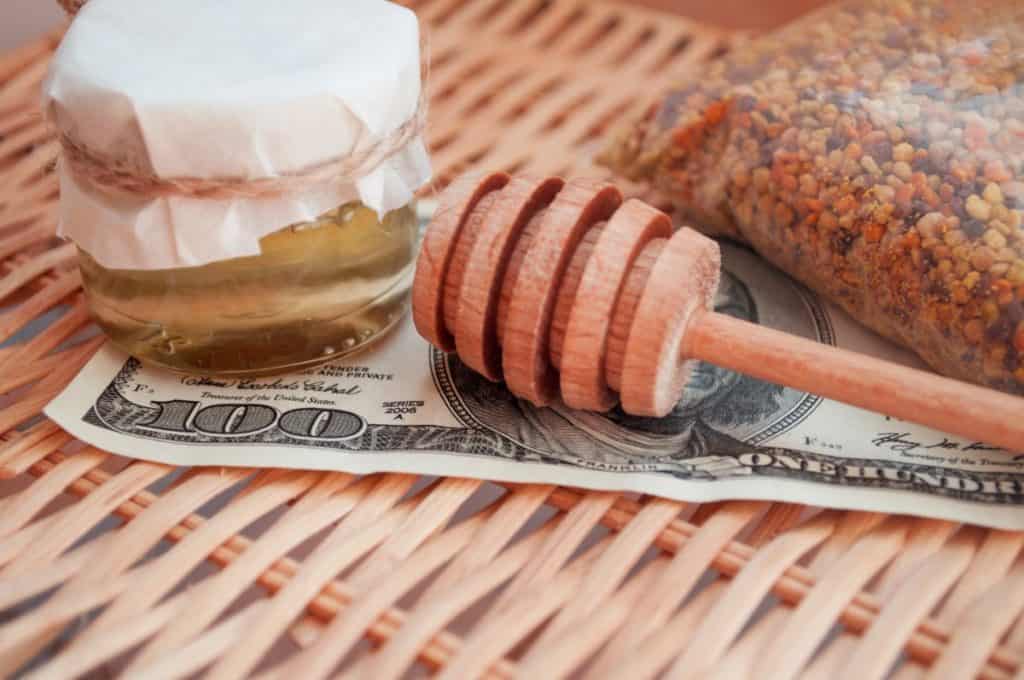
As you gain more experience and have built some strong bee colonies another good income stream is to collect and sell some of your bee pollen. Currently there is a strong market demand for collected bee pollen for its potential health benefits.
There is several different forms you could sell your bee pollen in:
- Granular Bee Pollen (dried) – the most common form sold to consumers.
- Bee Pollen Powder – is starting to become more common and is often put into capsules for dietary supplements.
- Frozen Fresh Bee Pollen (not dried) – this often demands a higher price since it contains higher nutritional content because no dehydration was performed on the pollen.
- Bee Pollen Capsules – dried bee pollen in powder form placed in vegetable capsules for consumers. Often sold as a dietary supplement in many health food stores.
- Bee Pollen Extracts – the bee pollen is extracted using alcohol or water based methods. These extracts usually demand a very high price, between $25 to $30 per ounce.
I would recommend starting with dehydrated bee pollen. It’s the most common and simple method of selling your pollen. I’ve broken down the price range for selling granular bee pollen by country in the chart below:
| Country | Avg. Price/Ounce | Avg. Price/100 Grams | Avg. Price/lb |
|---|---|---|---|
| United States | $2 to $2.75 | $9 to $10.25 | $18 to $24 |
| Canada | $1.90 to $2.45 | $6.75 to $9.00 | $17 to $25 |
| United Kingdom | £1.45 to £3.40 | £5.60 to £12 | £14.50 to £25 |
| Australia | $2.25 to $5 | $10 to $17 | $33 to $60 |
The price ranges I’ve listed above are based on the average prices demanded across a wide number of regions in each Country. They are very realistic price ranges but please keep in mind these are only estimates and I urge you to double check the pricing being demanded in your local region.
And if you’re interested in other income streams from your hives, hold up for just a sec, I wrote a simple guide on how many beehives it takes to make a living that I encourage you to read!
All pollen sold to consumers needs to be correctly labelled and adhere to your federal, state or province, and local laws and regulations for the labelling and sale of bee pollen.
Pollen is also considered an allergen so you may require additional warning labels depending on your region. Some common warning labels are:
“Allergens: Not suitable for pregnant women, infants under 12 months and those with a pollen allergy. Suitable for vegetarians.”
“Note: Bee pollen can create an allergic reaction, please consult your doctor before use if you are pregnant, breastfeeding, or if you suffer from pollen allergies.”
Harvesting Your Bee Pollen
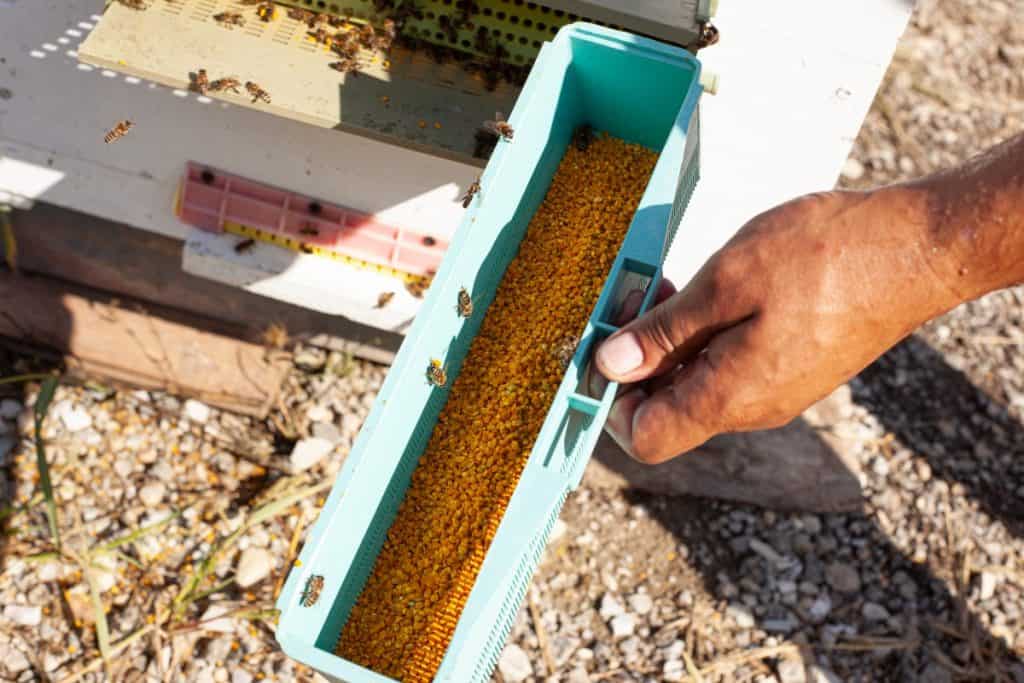
A pollen trap is added to collect pollen from your bees as they enter the hive. The trap fits over the entrance and forces the forager bees to crawl through small openings. As the bees crawl through these openings the pollen is stripped off and collected in a tray.
If you are going to use pollen traps make sure to block off any other entrances to the hive, otherwise the bees will simply avoid the traps. Also, experienced beekeepers have observed bees adapt and simply bring back a smaller amount of pollen so it doesn’t get knocked off by the pollen trap.
And if you are interested in using pollen traps, why not collect some propolis too! I wrote an article all about how much money you can make selling bee propolis that I encourage you to read!
There is a wide variety of pollen traps available that are either top mounted or bottom mounted. This is a personal preference and will depend on your current bee hive setup.
If you are going to collect pollen it needs to be harvested on a daily basis. Pollen contains a high percentage of moisture and will begin to mold if not collected daily.
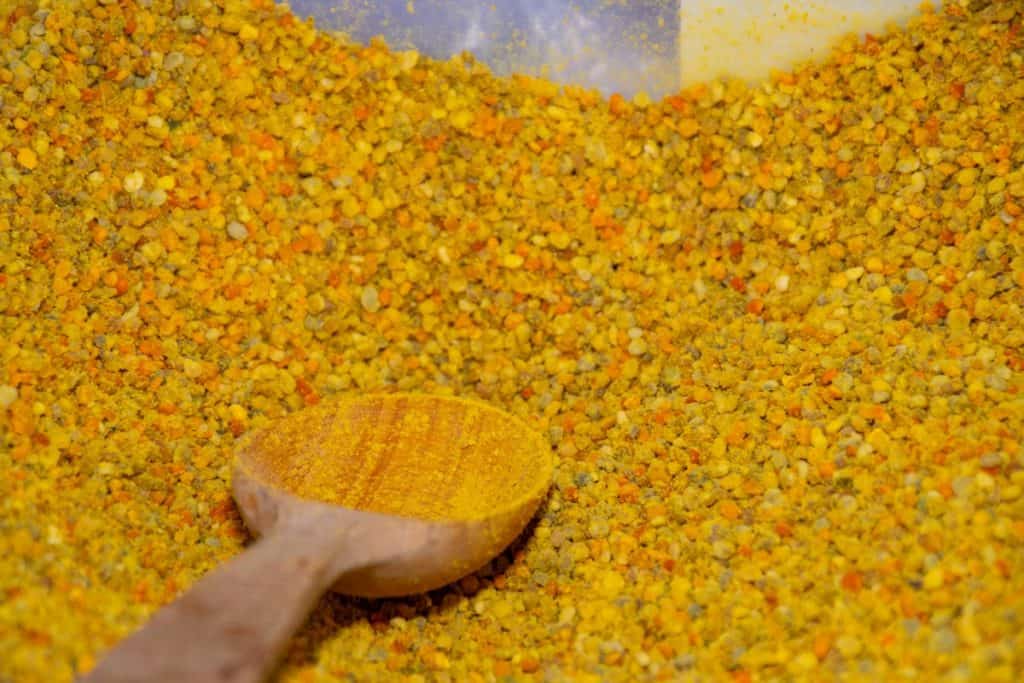
A word of caution when using pollen traps. Collecting to much bee pollen can cause harm to your bee colonies. You would be removing a very important source of protein for the bees that is only available at specific times of the year.
Bees need the pollen as a primary food source to feed and raise their young. This is the reason why most pollen is stored in the frames closest to the brood frames.
If the pollen trap is too efficient and collects to much pollen this can be very tough on your bees and could potentially reduce their chances of survival. The reduction of pollen collected by the bees can cause nutritional stress on the colony.
Also reducing the size of the entrance by these traps causes congestion at the hive entrance. This slows down how quickly forager bees can bring in the needed nutrients for the colony.
And if you’re interested in more info about collecting bee pollen, I wrote an article all about why beekeepers collect bee pollen and if its harmful to bees that I encourage you to read!
Potential Health Benefits Of Bee Pollen

Bee pollen is considered by many countries and regions to be an antioxidant super food which relieves inflammation, reduces stress, and can boost your immune system.
Currently there hasn’t been enough human-based research to necessarily confirm any beneficial health effects of bee pollen consumption. The most common scientific studies on the benefits of bee pollen are pharmaceutical studies conducted on rabbits and rats. Here is an interesting study discussing the potential health benefits of bee pollen.
It is well known that bee pollen is difficult to digest by humans and other animals. In the above study they discuss the effects of shredding the pollen or placing it in warm water for 2 to 3 hours to help increase the percentage of digestion.
Here is another article discussing the potential health benefits of bee pollen from Medical News Today.
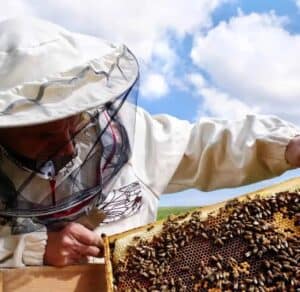
Joseph Davis
My goal is to show that anyone can take up beekeeping and it can be a very rewarding hobby. I strive to share my experiences and answer any questions you may have.
